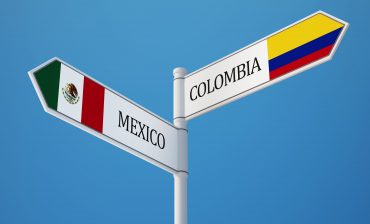Most of the intended parents contacting us for advice about Colombian and Mexican surrogacy are currently gay dads. That is not surprising given that the options for same-sex parents overseas are more limited than for different-sex parents. However, we expect the demand for surrogacy in South America to rise among all intended parent groups, given the current war in Ukraine. While the USA remains the most popular international surrogacy destination by a very long distance (and also the safest and most ethically robust), it is not affordable for many parents. Combined with the shortage of UK surrogates and lack of legal certainty in the UK, international surrogacy options in countries like Mexico and Colombia can seem attractive. However, it is important to understand that these surrogacy options are not just like US surrogacy but cheaper – they come with additional challenges that need to be navigated, and with significantly more risk.
All the legal cases we have been involved in so far with UK parents going through a surrogacy process in Mexico or Colombia have involved significant difficulties and delays the parents had not anticipated or budgeted for. We would recommend listening to this podcast ‘Stuck in Mexico’ from US LGBTQI podcast If Ovaries Could Talk as a typical expample of the experience we see on the ground.
And here are our top tips if you are considering surrogacy in Mexico or Colombia (or any other emerging destination).
1. Make sure you’ve checked out the legal process in the particular locality of Mexico or Colombia in which your child will be born
Don’t just rely on what an agency or clinic tells you about whether surrogacy is legal in the place where your child will be born, and don’t rely on advice from their lawyer. Do your own due diligence and get independent local legal advice. Bear in mind that surrogacy not being illegal does not mean there is a secure legal framework supporting it, or that navigating the process will be easy. Heed the advice of the US Embassy in Mexico that there is no clear legal framework for surrogacy there, and that you are reliant on informal local practices.
Ask your local lawyer: Are there any laws which prohibit surrogacy in the place where your child will be born? If there is no law regulating surrogacy in the particular locality (which is common in emerging surrogacy destinations), who will the law treat as legal parents when your child is born? Will you be recorded on the Mexican/Colombian birth certificate? What legal processes do you need to follow, and how reliable and well established are they? Can you be honest with the authorities about your situation and sexual orientation? And crucially, what real experience does your lawyer have on the ground of navigating these processes? How long does the legal process actually take, and is it vulnerable to the whims of individual judges or local officials who might be obstructive when the time comes?
One particular problem we have seen parents experience in every one of the Mexican and Colombian surrogacy cases we have dealt with so far is unanticipated difficulties dealing with local authorities after the birth to get birth certificates, court orders and passports.
2. Think about the risks, ethics and long term welfare issues for your child
It is critically important to think about whether things are managed ethically, whether your surrogate will be safe and well supported, and whether you will be able to build a relationship with her so that your child ultimately has good information about their birth story and confidence that it was a positive one. Of the arrangements we have seen in Mexico and Colombia so far, most parents have been able to form a positive and direct relationship with their surrogate (and egg donor). However, the approach of different agencies varies so do your homework carefully.
There is always risk involved in a surrogacy arrangement where there is no established legal framework, particularly in poorer countries. We have seen a pattern in the past (for example in India, Thailand, Nepal and Cambodia) where surrogacy services became popular and then there was a sudden crackdown to make it illegal. The parents and surrogates caught in the middle of the law change were in an impossibly difficult and stressful position, and faced significant difficulties bringing their children home. There is very little you can do to prevent this happening, but before going ahead think about how you would manage if this happens, and whether it is a risk you are willing to take.
Other risks need to be considered too, including the risk of navigating corruption and security issues while staying for an extended period with a new baby after the birth. If you can, talk to other parents who have been through the process recently to get a real picture of what it is like to have a baby through surrogacy in Mexico or Colombia.
3. Do as much due diligence as you can
Surrogacy is a long and expensive process, and you need to be confident that the professionals you are working with will honour their promises and support you all the way through. You also need to be confident that your surrogate was appropriately screened and will be cared for properly throughout the process. Go and see the agency you are considering engaging if you can, take up references and do as much homework as possible. Try and talk to parents who have completed the process with that agency and come home to the UK, not just those at an early stage.
4. Have a plan for bringing your baby home
Some of the most distressing cases we see involve parents stranded with a newborn who have hit hurdles and delays getting birth certificates and passports. If you are British you are likely to be able to get a British passport for your baby, but the process can be lengthy and will vary depending on biology, your surrogate’s marital status and what legal documentation is available in the country of birth. We can advise you on your particular circumstances and what you will need to do.
Given our experience of surrogacy in Mexico and Colombia we would not advise any parents to rely on being able to get a Mexico/Colombian passport for their baby to bring them home to the UK. You need an alternative immigration strategy and this needs careful planning.
5. Know what you need to do to secure your status as a family in the UK
Even if you are registered as legal parents on your baby’s birth certificate in the place where he or she is born, UK law will still treat your surrogate as the legal mother and, if she is married, will treat her husband (or wife) as the father. To make sure your family is legally secure in the UK, you will also need to apply to the family court for a parental order after the birth.
We manage more parental order applications than any other UK law firm every year, and have extensive experience helping parents navigate the process pratically and efficiently. We can advise you on what the court process involves but also what the court will ask you, so that as you go through the process you make the right decisions and gather the right information. We also offer a range of services for legal representation to suit different budgets.
So should we choose surrogacy in Mexico or Colombia?
The decision about the right path to build your family is a very personal one. It will depend on your budget, your orientation to risk, whether you are willing to spend an extended period of time abroad with a newborn baby, the kind of relationship you want to have with your surrogate (and if relevant your egg donor), and the type of professional support and medical care you want to have through you journey, as well as many other personal factors. We support parents with resolving the UK legal issues after surrogacy in every possible destination around the world, and want to make sure that everyone is fully informed before making such an important decision.
The UK’s leading surrogacy lawyers
Find out more about how we support families through surrogacy



